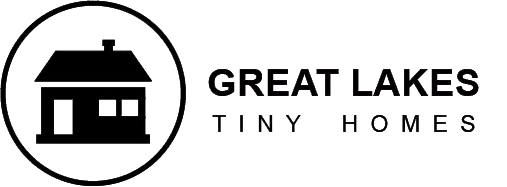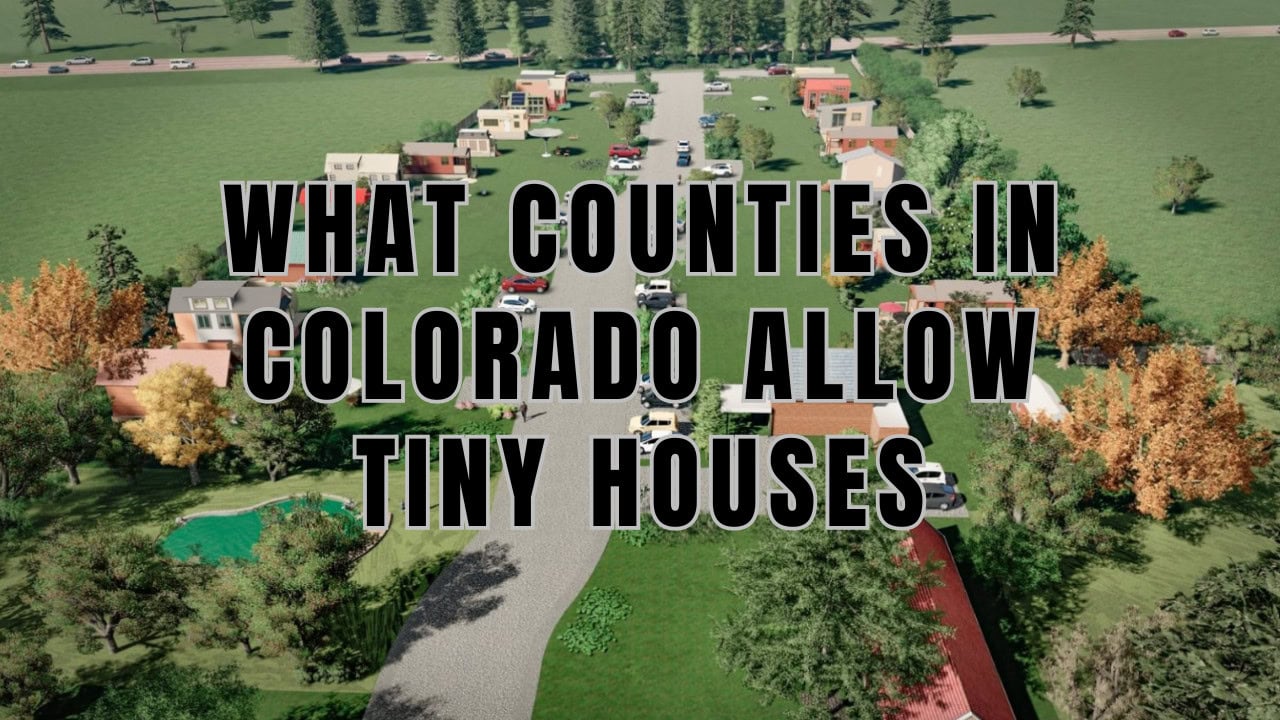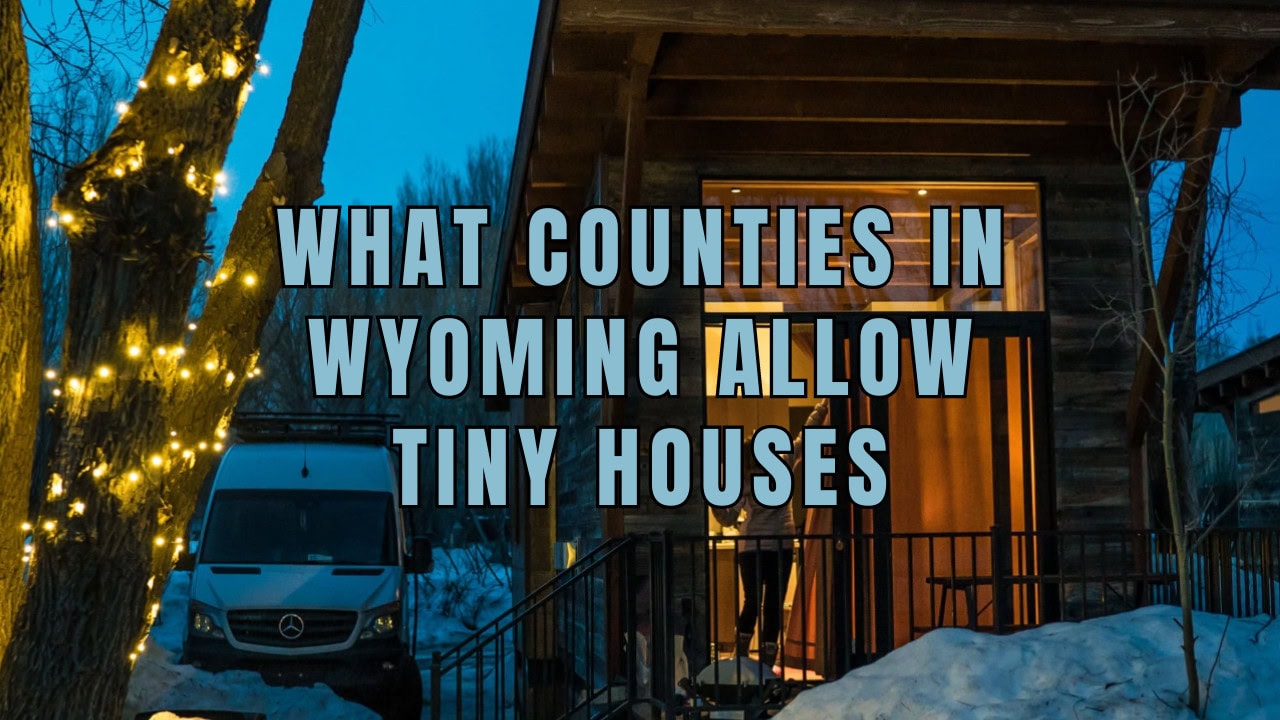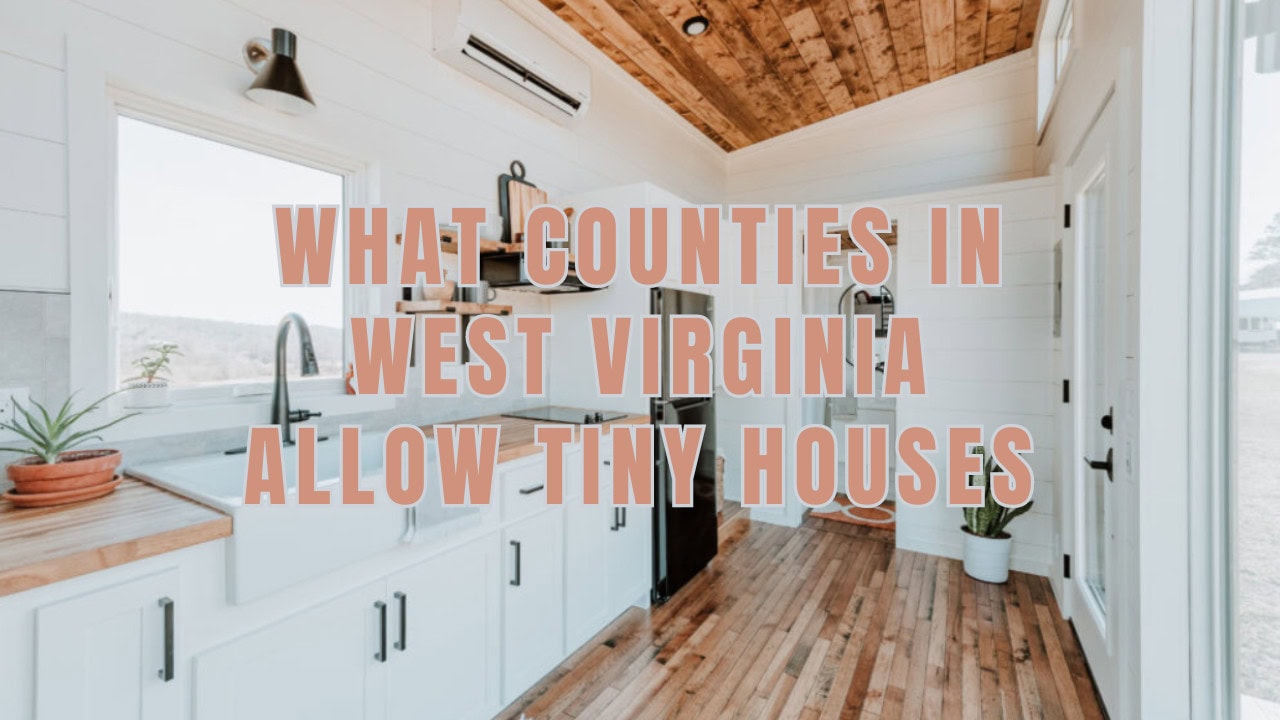Colorado is a great place to live in a tiny house because of its progressive culture, gorgeous scenery, and outdoor pursuits. But it also has some of the country’s most intricate and variable zoning regulations and building laws. It can be challenging to locate a suitable parking space or spot for small home construction.
The state jurisdiction may classify a tiny house as a prefabricated home, recreational vehicle (RV), residence, or other depending on its location, size, and kind.
In this post, we will examine whether Colorado counties permit small homes, and build tiny homes for sale, some rules to consider, and safe and legal ways to construct affordable housing in Colorado.
Tiny House Prices in Colorado
Many factors can influence the price of making Colorado the location for your tiny house dream. Prices vary based on whether the home is on wheels or a foundation, with prices ranging from $37,000 to $125,000. Check out tiny houses for sale in Colorado!
What Counties in Colorado Allow Tiny Houses?
Several counties in Colorado allow tiny houses, including Park County, El Paso County, and Delta County. Each county has specific regulations and zoning requirements for tiny houses, so it’s important to research and understand the rules before building or purchasing a tiny house in these areas. Furthermore, some municipalities within these counties may have their ordinances regarding tiny houses.
El Paso County
This county was among the first in Colorado to shift its perspective. They treat tiny houses as individual living areas rather than recreational vehicles. If you park your tiny house in a designated area and it passes the inspections, you can live there year-round.
The introduction of House Bill 1242 has been a game-changer, creating specific building standards for tiny homes and enabling permanent residency, which marks a significant shift from the previous 180-day living limit.
This new legislation has led to the legal recognition of tiny homes as permanent living structures in El Paso County, reflecting a broader acceptance of affordable and sustainable living solutions. It’s a big step forward for the tiny home movement.
Park County
Park County offers opportunities for tiny house living and building. Like in El Paso County, recent state legislation has been fundamental to this shift. However, potential residents need to be aware of the high building costs, infrastructure challenges, and county regulations.
Though Park County is a tiny house-friendly territory, it is fundamental to contact local planning departments and non-profit organizations to understand the specific requirements and regulations and the available support for tiny living enthusiasts.
It is worth mentioning that the recent and increasing interest in legislation and regulations for tiny houses in the state of Oregon is an excellent sign for the growth and acceptance of tiny living in the days to come.
Tiny House Regulations And Rules In Colorado
In this state, as in many others, tiny house regulations and rules vary by county and municipality. While some areas have embraced tiny houses as a viable housing option, others have strict zoning and building codes that make it challenging to legally live in a tiny house. It’s important to research and understand the regulations in the specific area where you plan to build or park a tiny house.
Permanent Structure Rules
As mentioned before, House Bill 22-1242, which went into effect on July 1, 2023, gave the green light to factory-built homes of about 400 square feet or less to become permanent housing solutions in neighborhoods.
This law sets building standards for tiny homes, considering matters like materials, foundations, and other safety matters in cities and counties to create legal pathways for people to live in tiny homes permanently. Larimer County, for example, has started to allow residents to live in their tiny homes for more than 180 days.
Regarding the building permits for permanent residences, the applicants need to comply with zoning and land use code rules, so be sure to consult the specific intricacies of the regulations in your city. Some cities and towns in Colorado have already made tiny home living legal, such as El Paso and Park counties, Durango, Leadville, Lyons, and Woodland Park.
Temporary Structure Rules
Instead of a foundation, tiny temporary houses have wheels. Their attractiveness comes from the sense of freedom provided by their mobility and the fact that you do not need to own a piece of land.
Though no specific codes apply to them in Colorado, you must consider the following:.
- Various Colorado states classify them as recreational vehicles (RVs), which means you are not allowed to live there permanently.
- You may be required to obtain a certification from the RVIA and adhere to the standards of the American National Safety Institute, including inspections and proper documentation.
Transitional Structure Rules
Transitional structures lie on the middle ground between mobile and permanent dwellings because they are tiny homes with foundations you can disassemble and transport on a trailer for travel purposes. The lack of detailed regulations makes consulting with local municipal building officials the best practice.
In Colorado Where Can I Build A Tiny House?
In Colorado, there are several places where you can build a tiny house. Some school districts are even entering the housing market themselves, constructing tiny homes to address the high cost of housing in the state. Denver, the capital city, is also embracing the tiny house movement, with the city planning to house more people in tiny homes in the coming years.
The FutureForward program is another initiative that supports the construction of tiny homes. This program provides students with hands-on experience in building tiny homes, equipping them with valuable skills for their future careers.
In addition to these initiatives, there are opportunities to build tiny homes in Colorado’s Western Slope region, which is home to numerous hot springs. Visitors to this area can book overnight stays in tiny homes, indicating a demand for this type of accommodation.
However, before you start building a tiny house in Colorado, consult with the Building Codes and Standards (BCS) department. They can guide the regulations and requirements for constructing a tiny house in the state.

Colorado Tiny House Communities
Hermosa Orchards Village
A thriving neighborhood called Hermosa Orchards Village is on seven acres in Durango, Colorado’s stunning Animas River Valley. Twenty-two small house and park model areas under 400 square feet are available for leasing.
Hermosa Orchards Village is a tiny house community created especially for those who value outdoor space and a sense of community. The lots, which range in size from 3600 to over 6000 square feet, provide you with more room to enjoy outdoor living spaces, decks, raised beds, gardens, storage shelters, and other features surrounding your house.
Peak View Park
Situated in the shadow of Pikes Peak in picturesque Woodland Park, Colorado, Peak View Park offers our long-term RV and Park Model Tiny Home residents breathtaking vistas throughout the year. With a focus on long-term residency, Peak View Park is for recreational vehicles and park models. It offers a year-round mountain retreat with outdoor activities, quick access to Colorado Springs, and nearby medical facilities.
Tiny House Builders Near me
Colorado offers outdoor activities and stunning mountain vistas, making it an ideal place for small homeowners to call home. Great Lakes Tiny Homes is a Colorado small home builder that may let you live in a city, a rural area, a tiny house community, or close to the ski slopes.
It offers multiple tiny house designs with nationwide delivery, eliminating the need to scout for local builders to find your dream home.
Furthermore, Great Lakes Tiny Home is an RV Industry Association (RVIA) builder. Passionate about the highest manufacturing standards and strict compliance with the building, safety, and regulatory guidelines for compact residences.
Do I Need a Certified Builder?
Yes, you do. Consider the DIY approach, but the risks are higher and the results are uncertain.
Working with an RVIA-certified builder, like Great Lakes Tiny Home, assures you will own a tiny house manufactured according to rules and regulations.
Furthermore, it offers peace of mind because it ensures the materials in your residence are safe, durable, and of top quality.
Other advantages of working with a certified builder include streamlined access to financing options and insurance coverage. Compliance with RVIA standards certifies your tiny house is a safe and habitable environment.

FAQs
Do Tiny Houses Pay Taxes in Colorado?
In Colorado, tiny homeowners do not have to pay property tax since dwellings and RVs do not comply with the standards of a conventional house. However, if you own a tiny house on wheels, you may have to pay motor vehicle taxes.
Can You Make a Tiny House in Colorado Your Main Residence?
Yes, you can make a tiny house your permanent residence in Colorado. The Colorado Tiny House movement has gained traction after the approval of House Bill 22 – 1242 (July 1, 2023). According to this law, factory-built homes of about 400 feet or less can become permanent residences in neighborhoods.
Another element of these regulations is the permission for cities and counties to create legal pathways to allow people to live in their tiny homes their entire lives. Before this legislation, there was no clear rule on how long someone could reside in a tiny home in Colorado, with an estimated 3,000 tiny homes in a legal gray area.
Can I Build a Tiny House in Denver in My Backyard?
Yes, a non-mobile tiny home is considered a single-family residence and needs a building permit. A mobile home zone district or a planned development that permits mobile homes is the only place where a mobile home may be built; otherwise, it needs a miscellaneous permit.
Conclusion
For those looking to live a simpler, more economical lifestyle while taking in everything that Colorado has to offer, tiny homes are an alluring alternative. But small-house lovers also have to deal with some difficulties and unknowns. The tiny home may be subject to various municipal and local laws, construction laws and regulations in Colorado, and different classifications and requirements, depending on its size, location, and kind.
Therefore, before purchasing or constructing a tiny home, conduct an in-depth study and speak with the appropriate authorities. You may ensure your tiny house is appropriate for your requirements and preferences, safe, and compliant by doing this.





